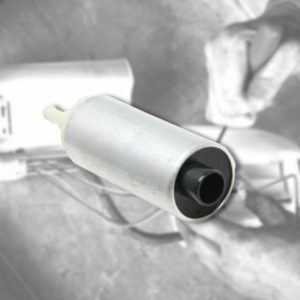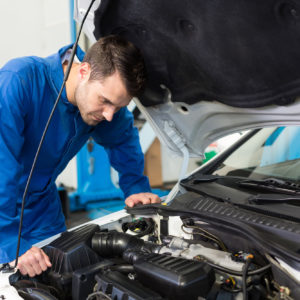The powertrain control module (PCM) operates the fuel injectors in electronic fuel-injection systems by using the signals from the ignition switch and RPM sensor. On vehicles with a returnless fuel injection system, the PCM typically communicates with the fuel pump control module (FPCM), which, in turn, controls the in-tank fuel pump.
What Does the U0109 Code Mean?
Diagnostic trouble code (DTC) U0109 stands for “Lost Communication with Fuel Pump Control Module.”

The fuel pump uses high pressure to deliver fuel from the gas tank to the fuel injectors. The fuel pump is also a part of the sending unit assembly that sends an electric signal to the fuel gauge. To ensure that the fuel pump is working as it should, the PCM relies on the information sent by various sensors and modules, which includes the fuel pump control module. If a problem develops in the FPCM, on-board diagnostics (OBD) will log a U0109 code.
Note: The definition of code U0109 might be different depending on the vehicle manufacturer. Consult the appropriate repair manual or repair database for the exact code definition.
What are the Common Causes of the U0109 Code?
- Faulty fuel pump control module
- Circuit problems, such as a damaged wire or poor connection
- Data network problems
- An issue with the powertrain control module

What are the Common Symptoms of the U0109 Code?
How to Diagnose the U0109 Code
Although U0109 is considered a generic diagnostic trouble code (DTC), the steps for its diagnosis and repair can vary depending on vehicle specifications. If you’re not familiar with the process of diagnosing trouble codes, it might be best to bring your vehicle to the nearest auto repair shop and have a certified mechanic check your vehicle for you.
But if you’ve had your fair share of checking your vehicle for trouble codes, then you can go ahead and do it yourself.
To help you out, here’s a video that shows what the process might involve:
How to Fix the U0109 Code
Attempting to fix a U0109 code can be tricky without the right tools and technical knowledge. Working on your vehicle without the necessary auto repair skills might lead to more problems down the road. So if you’re not confident with your DIY skills yet, it’s best to have a trained professional do the repairs for you instead.
But if you’re someone who knows their way around resolving trouble codes, make sure to have the right repair manuals before proceeding. Keep in mind that there’s no such thing as a magic bullet that will work for all vehicles. So before you start, you might want to check out guides like those from Chilton or an ALLDATA subscription to get vehicle-specific repair information.
Any information provided on this Website is for informational purposes only and is not intended to replace consultation with a professional mechanic. The accuracy and timeliness of the information may change from the time of publication.

















